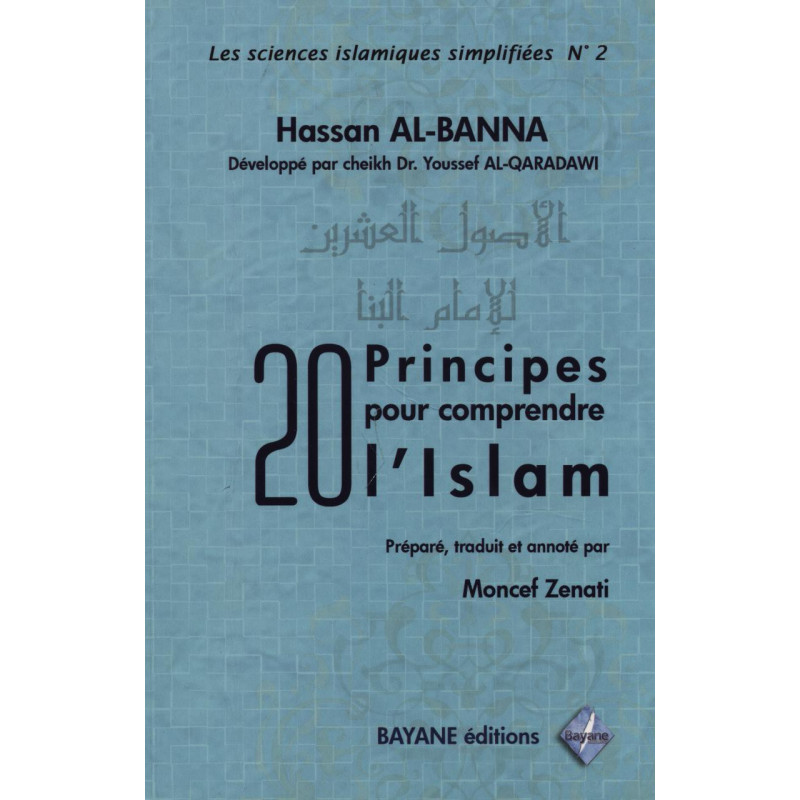

Promotions SANA: Jusqu’à -20%, Cliquez ici
Promotions SANA: Jusqu’à -20%, Cliquez ici
In the Treaty of the teachings that he intended for committed Muslims, Imam Hassan Al-Banna highlighted that the understanding of Islam constitutes, before sincerity and action, a pillar without which the building of Muslim community cannot be built. He determined twenty principles, delivered to the reader in an elegant and concise style.
Towards an authentic understanding of Islam.
Today there are many attempts to reduce the Message of Islam and distort its deeper meaning. The most obvious reduction is that which consists in claiming to "secularize Muslim culture", by requiring the distinction between the religious sphere and the administration of the affairs of the city. The most considerable deformation is that which consists in questioning its sources: The Koran and the Sunna (the prophetic tradition). However, if Islam is indeed a global and total way of life, it is not for all that a totalitarian ideology. And if he invites us to return to the revealed texts which have the force of law, he does not congien for all that to fundamentalism.
In the Treatise on the teachings that he intended for committed Muslims, Imam Hassan Al-Banna highlighted that the understanding of Islam (al-fahm) constitutes, before sincerity (al-ikhlâs) and action (al-'amal), a pillar without which the edifice of the Muslim community simply cannot be built. He determined twenty, which, in the opinion of a large number of contemporary scholars, reveal an unequaled broadness of view on important doctrinal questions, delivered to the reader in an elegant and concise style.
By these principles, he thus answered many questions which caused divisions within the community and which weakened it:
So many questions that led to the fragmentation of the Muslim community, and to which the imam responds by banishing partial views that do not correspond to the teachings of the Prophet, and by excluding extreme positions that contradict the middle ground in which the Muslim faith.
Prepared, translated and annotated by Moncef Zenati
Data sheet
Specific References
No customer reviews for the moment.